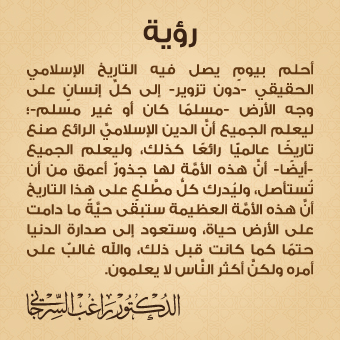His 2007 book, "Lost History: the Enduring Legacy of Muslim Scientists, Thinkers and Artists" has now touched more than 300 million people worldwide.
short desc
He was a famous English scholar of Jewish origin, a professor of Islamic history in the Universities of London and California.Bernard Lewis
He was a famous English scholar of Jewish origin. Born in 1916, he lived in the United States and was a professor of Islamic history in the Universities of London and California. He was the president of the Near and Middle East Circle in the Institute of Oriental and African Studies at London University, and a teacher in the Department of History at its School until he became its president in 1957 for 15 years before he moved in 1973 to the Department of Near East Studies at Princeton University, New Jersey.
He was a permanent member of the Princeton Institute of Advanced Studies, the same in which Albert Einstein had previously worked. In 1982, Lewis was naturalized as an American citizen. In 1986, he was the co-director of the Annenberg Research Institute of Jewish and Near East Studies.
He has many writings and articles and much research under his name, including: The Arabs in History (1950); The Emergence of Modern Turkey (1961); Istanbul and the Civilizations of the Ottoman Empire (1963); The Assassins: A Radical Sect in Islam (1967); The Cambridge History of Islam (2 vols. 1970, revised 4 vols. 1978, editor with Peter Malcolm Holt and Ann K.S. Lambton); Islam: From the Prophet Muhammad to the capture of Constantinople (1974, editor); History — Remembered, Recovered, Invented (1975); Race and Color in Islam (1979); Christians and Jews in the Ottoman Empire: The Functioning of a Plural Society (1982, editor with Benjamin Braude); The Muslim Discovery of Europe (1982); The Jews of Islam (1984); Semites and Anti-Semites (1986); The Political Language of Islam (1988); Race and Slavery in the Middle East: a Historical Enquiry (1990); Islam and the West (1993); Islam in History (1993); The Shaping of the Modern Middle East (1994); Cultures in Conflict (1994);The Middle East: A Brief History of the Last 2,000 Years (published in U.K. as The Middle East: 2,000 Years of History from the Rise of Christianity to the Present Day) (1995); The Future of the Middle East (1997); The Multiple Identities of the Middle East (1998); A Middle East Mosaic: Fragments of Life, Letters and History (2000); Music of a Distant Drum: Classical Arabic, Persian, Turkish and Hebrew Poems (2001); The Muslim Discovery of Europe (2001); What Went Wrong?: The Clash Between Islam and Modernity in the Middle East (2002); The Crisis of Islam: Holy War and Unholy Terror (2003); From Babel to Dragomans: Interpreting the Middle East (2004); Islam: The Religion and the People (2008, with Buntzie Ellis Churchill); Faith and Power: Religion and Politics in the Middle East (2010) Oxford University Press; The End of Modern History in the Middle East (2011) Hoover Institution Press.
They are the most tolerant
“(With regard) to the clash between Christian Europe and Ottoman Islam, … there were exaltation and dogmatism on both sides—and greater tolerance on the Turkish.”[1]
Which of the two parties is better?
“When Ottoman rule in Europe came to an end, the Christian nations they had ruled for centuries were still there, with their languages, their cultures, their religions, even to some extent their institutions, intact, and ready to resume their separate national existence. There are no Muslims today in Spain or Sicily, and no speakers of Arabic.”[2]
unity and security in place of conflict and disorder
“The peasantry in the conquered provinces also found their lot much improved. Ottoman imperial government brought unity and security in place of conflict and disorder. There were also important social and economic consequences. … They enjoyed far greater freedom on their farms than previously; the taxes they paid were modestly assessed and humanely collected, in comparison with the practice of previous and neighbouring regimes.”[3]
They witnessed to the truth
“Even the defenders of the established order were impressed by the political and military efficiency of the Turkish Empire. A large proportion of the vast literature produced in Europe on the Turkish menace is concerned with the merits of the Turkish order, and the wisdom of imitating it.”[4]
None rules by a right from heaven
“It is sometimes said that the Caliph was pope and emperor in one. The analogy is misleading. The Caliph had no pontifical or even priestly functions, and did not receive the professional training of the men of religion, the ulema. His duty was not to expound, still less to interpret the faith, but to uphold and protect it, and to create and maintain conditions in which men could live the good Muslim life in this world, and thus prepare themselves for the world to come. To accomplish this, he had to preserve law and order within the frontiers of Islam, and defend those frontiers against external attack. Where possible, it was his duty to extend those frontiers, until in the fullness of time the whole world was gained for Islam.”[5]
[1] Lewis Bernard, War And Politics, Legacy Of Islam, Edited By Joseph Schacht And C. E. Bosworth, 199.
[2] Ibid. 199.
[3] Ibid. 199-200.
[4] Ibid. 201.
[5] Ibid. 158.






.jpg)



Comments
Send your comment